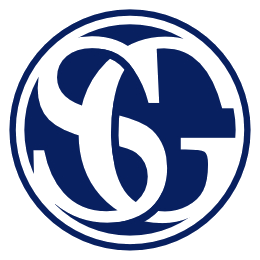What you need to know about probation violations

Probation violations in Arizona can vary in how serious they are. No matter the seriousness of the violation, they need to be dealt with immediately. That’s because a probation violation can lead to jail, prison, or other life changing penalties. What’s at stake will depend on what the terms of your original agreement were and what new charges have come about—if any. I’ve seen many cases where probation violations were easy to explain as a simple misunderstanding. Either way, things can be made a lot worse off by not dealing with the problem right away.
What is a probation violation?
One thing that separates probation violations from a conventional criminal case is that almost always, the probationer has already been found guilty of a crime and that is why they are on probation. This means that the facts of the underlying case are not in dispute and all that is at issue is (1) whether or not they violated probation and (2) if they did violate, what the punishment will be.
Determining whether or not you violated probation will depend on what the terms of your probation are. For example, one term that is always a term of probation (usually Term 1) is to not commit any new crimes. If you are arrested for a crime, you will have to deal with both the underlying charges of the arrest and the probation violation. As another example, if a term of probation is for you to not leave the state and you are found to be in Alaska, the probation officer could issue a warrant for your arrest, and you could be arrested and held for a probation violation hearing.
Some of the common probation violations are:
- Committing a new crime
- Not reporting for scheduled meetings with the probation officer
- Failing required drug or alcohol testing
- Failing to communicate with the probation officer
- Not paying required probation fees
- Leaving the state or county without permission
- Being around individuals convicted of felonies or who are also on probation without permission
What can you expect if accused of a probation violation?
When a person is first arrested for a probation violation, the primary concern for most people is to get them (or their loved one) released from jail. Most of the time, this can be a very difficult task. This is because when a person is arrested for a probation violation, they are not entitled to a bond as a matter of right. This means that the judge has discretion to offer terms of release but does not legally have to offer any path to release until the underlying probation violation is dealt with. Having a passionate criminal defense attorney from the outset is important given the discretion the judge has here.
The next hearing that will occur will be the Probation Violation Arraignment. At this point, a person will need to either admit or deny that the probation violation occurred. If there are multiple terms of probation that the probation officer is alleging have been violated, each term will need to be dealt with.
What to do at this hearing will depend on a several factors and it is very important to speak to an attorney before this hearing.
Some of the issues that need to be worked out before the arraignment hearing can include
(1) understanding where the probation officer stands on the situation,
(2) understanding the seriousness of the allegations and
(3) understanding the weight of the evidence against the person that the violation even actually occurred.
After the probation violation arraignment, there will be a hearing to determine if a violation actually occurred. This will only be necessary if an agreement hasn’t been reached between the defense attorney and the probation officer prior to the hearing. At the hearing, there will be witnesses and evidence presented. It can be thought of as a mini trial, but there is no jury and the judge will be the one to decide if a violation has occurred. If the judge finds that a violation has occurred, there will be a hearing to determine the consequences. This hearing can happen right away following the probation violation hearing or be set off for the future.
The accusations that are involved in any given case will help to determine whether to resolve the case on day one of the probation violation hearing or to push it out to another day. If it is pushed out, the accused will likely stay in custody until the resolution of the hearing. For example, if a person is accused of committing a new crime and that is the basis for a probation violation, the violation may track along with the new case that has been filed against that person. In situations like this, a defense attorney can try to work on resolving both cases together in a favorable way for the accused.
What are the consequences for a probation violation?
Consequences for a probation violation can vary wildly. If the violation is a minor violation (and/or a first-time violation) the disposition may just be a figurative slap on the wrist and to “reinstate” the term of probation. “Reinstate” meaning to just pick up where you left off on probation. Sometimes reinstatement of probation involves including further restrictions as a term of probation.
A couple of examples are additional terms may be added to the current level of probation, or the level of probation may be increased from “supervised probation” to “intensive probation.” Intensive probation includes more stringent reporting requirements and to have ankle GPS monitoring.
If the allegation is more serious, probation can be revoked. The primary goal in probation violation cases is usually to avoid having probation revoked. However, there can be strategic reasons to have probation revoked depending on the specifics of the case. If probation is revoked, a person might be sentenced under the original felony conviction and the sentencing guidelines for that felony. Also, there may have been a “suspended sentence” that is to be imposed if probation is not successfully completed. This can often include jail or prison time.
What should I do if a loved one is being held for a probation violation?
Call a criminal defense attorney immediately. As mentioned before, the sooner that a defense attorney gets involved in the case in probation violation situations, the better. It also increases the likelihood of having the accused released. If you have questions about probation violations in Arizona, contact attorney Steven Scharboneau by sending me a message HERE or you can call/text me 24/7 at (480) 363-0090.



